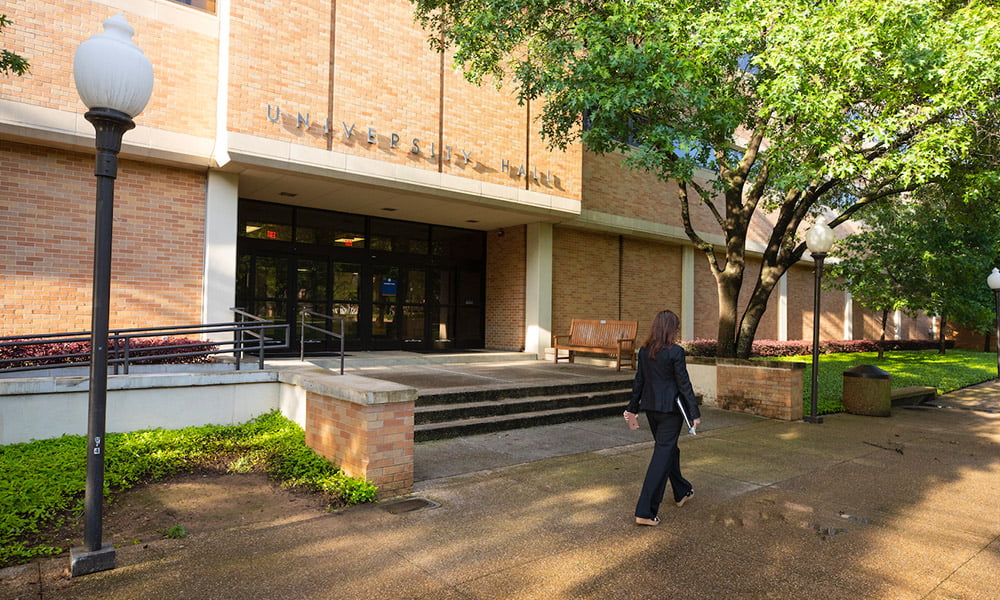Through the SAR Center, a commitment to equal access

The University of Texas at Arlington’s Office for Students with Disabilities has changed its name to Student Access & Resource Center (SAR Center) to better reflect the goal of providing services to all students with accessibility needs.
“Our role on campus is to ensure and provide accommodation and to support, as much as possible, equal access,” said Cynthia Lowery, director of the SAR Center. “We want to provide opportunities for accessibility to all UTA students.
“Our passion is to grow this center and reach those students who qualify for resources but have never come through our doors for various reasons,” she continued. “I want to get them through our doors so we can get started.”
UTA not only offers a physically accessible campus, but also a long history of leadership when it comes to inclusivity. In 1974, then-UT Arlington President Wendell Nedderman famously toured campus in a wheelchair to experience firsthand many of the same challenges faced by students with disabilities in trying to navigate the campus. He later said the experience helped him gain new perspective on the issue.
“We strive to be welcoming to people of all abilities, work proactively to address accessibility needs and respond as quickly as possible when individuals report problems,” said Lisa Nagy, vice president of student affairs. “The staff at the SAR Center is willing and able to work collaboratively with students, staff and faculty in order to ensure that all aspects of each student’s college experience is inviting and inclusive.”
UTA’s rich history of embracing innovation and creativity also includes adaptive sports scholarships and programs like the Movin’ Mavs and the Lady Movin’ Mavs wheelchair basketball teams and an interdisciplinary minor in Disability Studies.
“UTA has a history of growing inclusion practices and programs for our students with disabilities,” said Doug Garner, head coach of the Movin’ Mavs. “Accessibility is not only about the physical environment, but also about creating a culture of acceptance and awareness of the programs and services that make UTA an accessible community that includes all students.”
A comprehensive timeline of the history of accessibility at UT Arlington and the Texas Disability History Collection can be through UTA Libraries’ online exhibits.